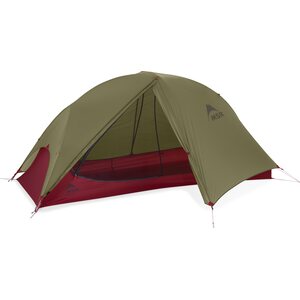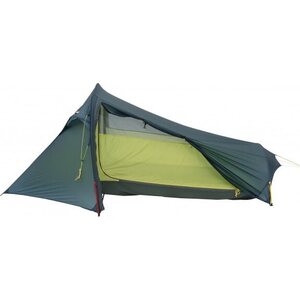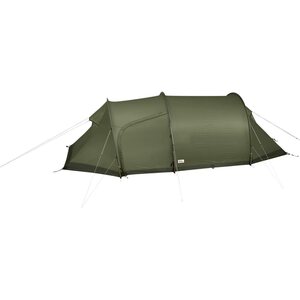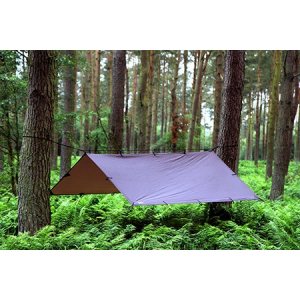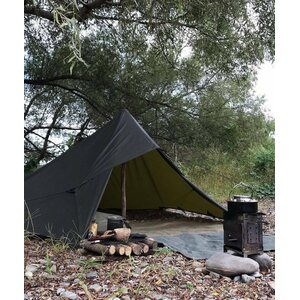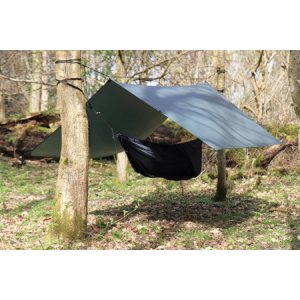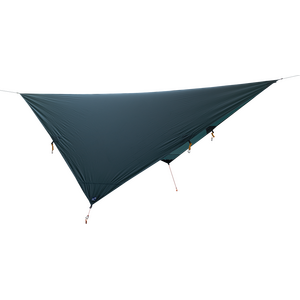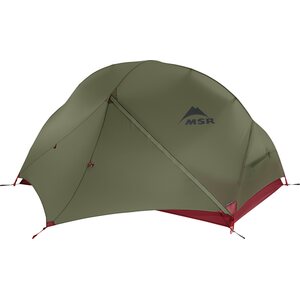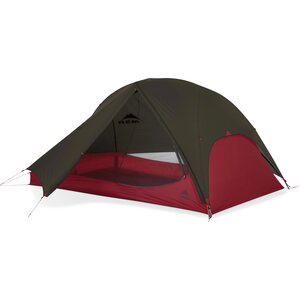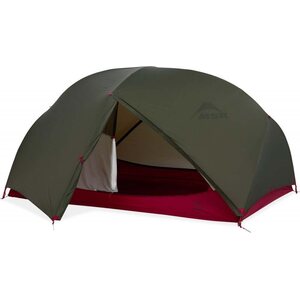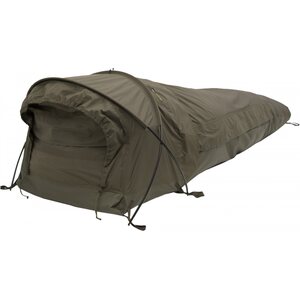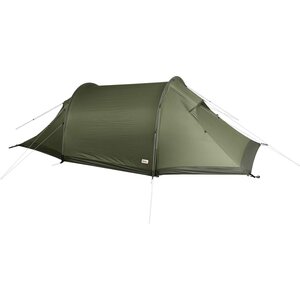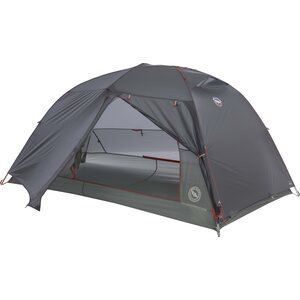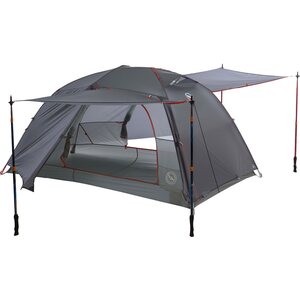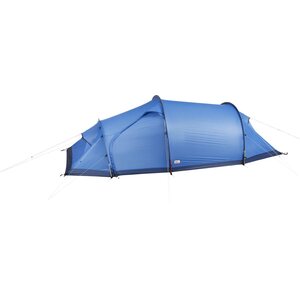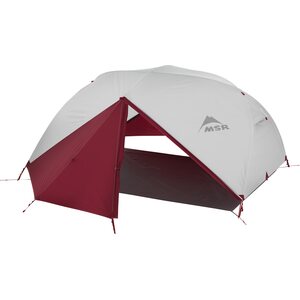The market offers a wide variety of different tent models. Choosing the right tent depends primarily on its intended use, but your budget is also a natural consideration. A tent is always a compromise between weight and durability, and even the most expensive option may not always be the best for every situation. It's even possible to sleep outdoors without a tent altogether.
Consider the Tent's Purpose and the Seasons You’ll Be Using It
Before rushing into a purchase, take some time to think about how you plan to use the tent. There’s a huge difference between spending a few summer nights in a local forest or at a festival, and embarking on a week-long winter hike in a remote wilderness.
The first question is about the seasons. Will you only be camping in the summer, in three seasons, or are you planning to camp in the winter as well?
Be honest with yourself when thinking about the tent’s purpose. A common mistake is assuming that the tent you buy needs to withstand several nights in an exposed mountain area during a fierce autumn storm, focusing only on the worst-case scenario. In addition to a high price, a tent that’s “too” durable and sturdy is often too heavy and difficult to carry.
If you plan to camp year-round, it’s not a bad idea to buy separate tents for summer and winter use. That way, you can use a lighter tent in the summer and pack a larger one in a sled for winter trips
Winter camping: tips and tricks
How Many People Need to Fit in the Tent?
Another key consideration is the number of people using the tent. There are a wide variety of one-, two-, three-, and four-person tents, and even larger models. You should also consider whether you want space in the tent for your dog, for example.
Sporty»Turistika»Stany a přístřešky»
1 person tents
Sporty»Turistika»Stany a přístřešky»
2 person tents
Sporty»Turistika»Stany a přístřešky»
3 person tents
Sporty»Turistika»Stany a přístřešky»
4 person tents
For size, a two-person tent is often a good idea, even if you usually camp alone. You can accommodate a friend if needed, and if alone, you’ll have a bit more space to stretch out. Solo tents can be cramped, especially for larger people. On the other hand, a one-person tent saves weight and packing space if you don’t need the extra room.
Think about whether you’ll be spending more time in camp or just using the tent for sleeping. If you plan to enjoy camp life, the extra space can be very valuable, but for pure sleeping purposes, a lighter option is often preferable.
How Much Should You Spend on a Tent?
The price of a good-quality tent generally ranges from around 300 to 1000 euros. Factors like weight, design, materials, and details such as zippers and ventilation affect the cost. More expensive tents are often easier to set up, more durable, and better constructed.
It’s hard to say exactly how much a good tent should cost because it depends on the required features. However, keep in mind that a quality tent can be a long-term investment, and a little extra upfront cost can pay off in better sleep over many future nights.
Tunnel or Dome Tent?
The most common tent types are tunnel and dome tents, each with its own strengths and weaknesses.
Dome tents Tunnel tents
A tunnel tent, when set up facing the wind, offers great storm resistance, a spacious interior, and usually a large vestibule (a sheltered space for storing gear or cooking). However, setting up a tunnel tent can be tricky because it requires a large, flat area and the use of pegs.
Dome tents, on the other hand, are typically freestanding, meaning they don’t require pegs to stay upright. This makes them easier to pitch on rocky terrain, for example. Dome tents also take up less ground space and can be moved after setup if needed. However, the vestibule in dome tents is usually smaller or nonexistent.
When buying a tent, consider how easy or difficult it is to set up. If you can’t test the tent in person, many popular models have setup videos online. After a long day of hiking, a complicated setup can feel surprisingly burdensome, so simplicity is key.
In some dome tents, the poles attach to the inner tent. This can be useful in summer when you can pitch just the breathable inner tent as protection from mosquitoes, but it can make setup in the rain more challenging. Other tents have poles attached directly to the outer tent, so the inner tent doesn’t get wet during setup.
There are three main types of tent poles. Fiberglass poles are found in cheaper tents but break easily. Aluminum poles are more durable and are found in higher-end tents, while carbon fiber poles are lighter and durable if used correctly.
In addition to tunnel and dome tents, there are also lightweight tents that can be pitched using trekking poles, often in a pyramid shape. A simple tarp is also a great alternative.
Sporty»Turistika»Stany a přístřešky»Shelters a tarps»
DD Hammocks
DD Tarp 3x3
Dostupné skladem
☆☆☆☆☆ (391)
Sporty»Turistika»Stany a přístřešky»Shelters a tarps»
Bushcraft Spain
Oilskin Tarp 3x3m
☆☆☆☆☆ (23)
Sporty»Turistika»Stany a přístřešky»Shelters a tarps»
DD Hammocks
SuperLight Tarp
Dostupné skladem
☆☆☆☆☆ (162)
Sporty»Turistika»Stany a přístřešky»Shelters a tarps»
Ticket To The Moon
MoonTarp
Dostupné skladem
☆☆☆☆☆ (37)
Tent Weight and Packability
Teltan painoon kannattaa kiinnittää paljon huomiota, erityisesti jos teltan kanssa aikoo tehdä pitkiä vaelluksia. Kevytretkeilyyn tarkoitetut niin sanotut ultralight-teltat painavat usein vain noin kilon tai jopa sen alle.
A short guide to ultralight backpacking
Tent weight is an important factor, especially if you plan to do long hikes. Ultralight tents often weigh around one kilogram or even less. Lightweight tents aren’t necessarily less durable or inferior to heavier options. Often, the weight savings come from clever design choices, fewer features, and smart material selection. Standard trekking tents, where weight isn’t the main concern, usually weigh around 2 to 2.5 kilograms. A tent that weighs over three kilograms is quite heavy, especially for longer treks.
Some tents are designed to pack tightly, making them easy to fit into a backpack or suitable for bikepacking. Larger tents, like base camp tents or winter tents meant for a sled, can be very difficult to carry on foot.
Do You Even Need a Tent?
A tent isn’t the only way to spend the night outdoors. In good weather, you can sleep under the stars with just a sleeping pad or in a hammock. Finland also has countless lean-tos, huts, and wilderness cabins where you can spend the night without a tent.
Even if you plan to sleep in a hut or lean-to, it’s wise to bring a backup shelter just in case. The shelter could be occupied, or you might get too tired to reach your destination. Having your own tent provides both comfort and safety. If you’re not sure about buying, you could borrow a tent from a friend or relative.
TOP 10 most popular tents
Sporty»Turistika»Stany a přístřešky»2 person tents»
MSR
Hubba Hubba NX
Dostupné skladem
☆☆☆☆☆ (365)
Sporty»Turistika»Stany a přístřešky»3 person tents»
Fjällräven
Abisko Endurance 3
Kampaňová cena 794,34 €
3.03 kg
Dostupné skladem
☆☆☆☆☆ (57)
Sporty»Turistika»Stany a přístřešky»2 person tents»
MSR
FreeLite 2
Dostupné skladem
☆☆☆☆☆ (35)
Sporty»Turistika»Stany a přístřešky»2 person tents»
MSR
Hubba Hubba Bikepack 2
Dostupné skladem
☆☆☆☆☆ (20)
Sporty»Turistika»Stany a přístřešky»Bivakovací vaky a nouzové přístřešky»
Carinthia
Observer Plus
Dostupné skladem
☆☆☆☆☆ (25)
Sporty»Turistika»Stany a přístřešky»3 person tents»
Fjällräven
Abisko Lite 3
Kampaňová cena 595,59 €
2.22 kg
Dostupné skladem
☆☆☆☆☆ (45)
Sporty»Turistika»Stany a přístřešky»3 person tents»
Big Agnes
Copper Spur HV UL3 Bikepack
Dostupné skladem
☆☆☆☆☆ (4)
Sporty»Turistika»Stany a přístřešky»2 person tents»
Big Agnes
Copper Spur HV UL2 Bikepack
Dostupné skladem
☆☆☆☆☆ (30)
Sporty»Turistika»Stany a přístřešky»3 person tents»
Fjällräven
Abisko Shape 3 trekking tent
Kampaňová cena 661,84 €
2.56 kg
Dostupné skladem
☆☆☆☆☆ (129)
Sporty»Turistika»Stany a přístřešky»3 person tents»
MSR
Elixir 3 V2
Dostupné skladem
☆☆☆☆☆ (21)
Mohlo by vás zajímat také
Why choose a merino wool base layer?
In collaboration with Devold
Merino wool has long been the trusted base layer material for hikers, outdoor enthusiasts, and active people. It is nature’s own super material, performing well both in everyday life and in demanding conditions. A merino wool base layer is often the f...
Tehokasta ja pitkäkestoista suojaa hyttysiä ja muita ötököitä vastaan
Yhteistyössä Care Plus ja Craghoppers
Matkailukauden lähestyessä on hyvä hetki pysähtyä miettimään, miten suojautua tehokkaasti hyttysiä, punkkeja ja muita verta imeviä hyönteisiä vastaan. Olitpa sitten suuntaamassa eksoottiselle kaukomatkalle tai valmistautumassa kotimaan mökkir...
Vastuullista laatua ja pohjoista kestävyyttä jaloillesi
Yhteistyössä Kamik
Kun talvi kiristää otettaan ja loska, lumi sekä pakkanen haastavat arjen, moni miettii, mitkä kengät pitävät jalat oikeasti lämpiminä ja kuivina. Usein mieleen tulee tunnettuja pohjoismaisia tai kanadalaisia brändejä – mutta oletko jo tutustunut Kamikiin? Kamik...
